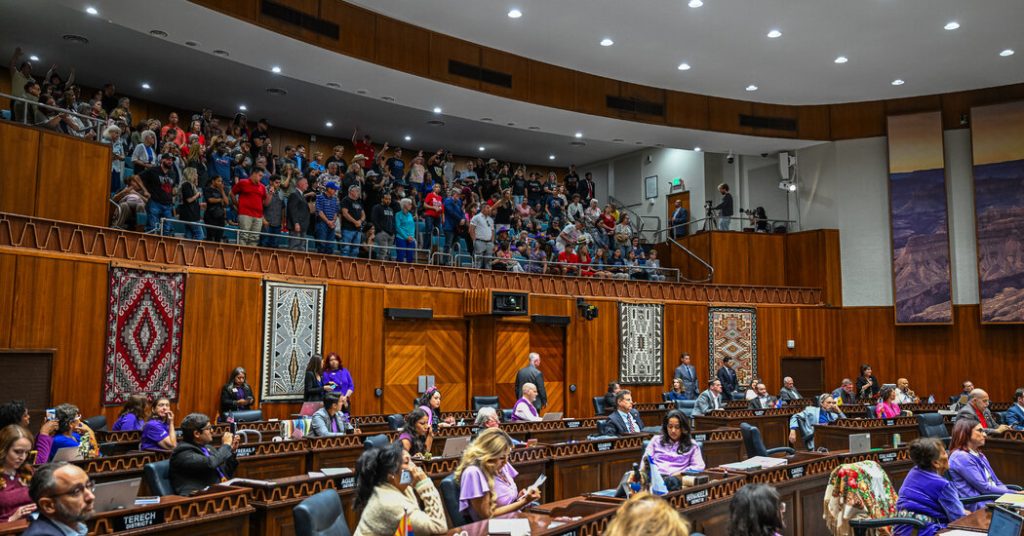State Representative Matt Gress, a Republican in a moderate slice of Phoenix, recently voted to repeal an 1864 law banning abortion in Arizona. The repeal has sparked intense backlash from anti-abortion activists, with some calling him a baby killer and traitor. Mr. Gress believes that the sudden jump from legal and constitutionally protected abortion to a near-complete ban overnight would not sit well with the electorate. He has tried to navigate a middle path through the contentious abortion debate that has engulfed Arizona politics since the State Supreme Court resurrected the Civil War-era ban.
A former teacher and school-board member, Mr. Gress represents a diverse area of Phoenix and Scottsdale. He had previously focused on issues like homelessness and teacher pay before the abortion debate took center stage. Despite facing criticism for his vote, some voters in his district have praised him for supporting the repeal bill. However, there are also dissenting voices, like Diana and Marco Collins, a Christian couple who view abortion as genocide and are disappointed by the actions of Mr. Gress and other Republicans who supported the repeal.
Following the State Supreme Court’s ruling upholding the 1864 ban, a shift in political dynamics has occurred within the Republican Party in Arizona. Some Republicans who previously opposed efforts to repeal the ban are now voicing criticism of the ruling and calling for its repeal. Former President Donald Trump and Republican Senate candidate Kari Lake have also advocated for the ban to be overturned. The law prohibits abortion from conception except to save the mother’s life, without exceptions for rape or incest, and has been on hold since the court’s decision.
The fractures within the Republican Party over abortion were evident during the House vote on repealing the 1864 law, with some conservative members attempting to derail the proceedings. Anti-abortion activists mobilized to pressure legislators to reject the repeal effort, both inside and outside the Capitol. Some Republicans who supported the repeal did so out of concern that leaving the ban in place could lead to increased support for a ballot measure to add abortion protections to the state constitution. A pro-choice campaign has already collected more than enough signatures to get on the ballot.
Lawmakers in Arizona are considering various options regarding abortion regulations, including whether to pass their own ballot measures to counter the pro-choice initiative. The current partial ban on abortions in the state allows them up to the 15th week of pregnancy. Some Republicans view this as a reasonable compromise, while critics argue that the ban lacks exceptions for rape or incest and sets an arbitrary cutoff point. The ongoing abortion debate has energized voters on both sides of the issue, and the outcome remains uncertain as efforts to repeal the 1864 ban progress.


